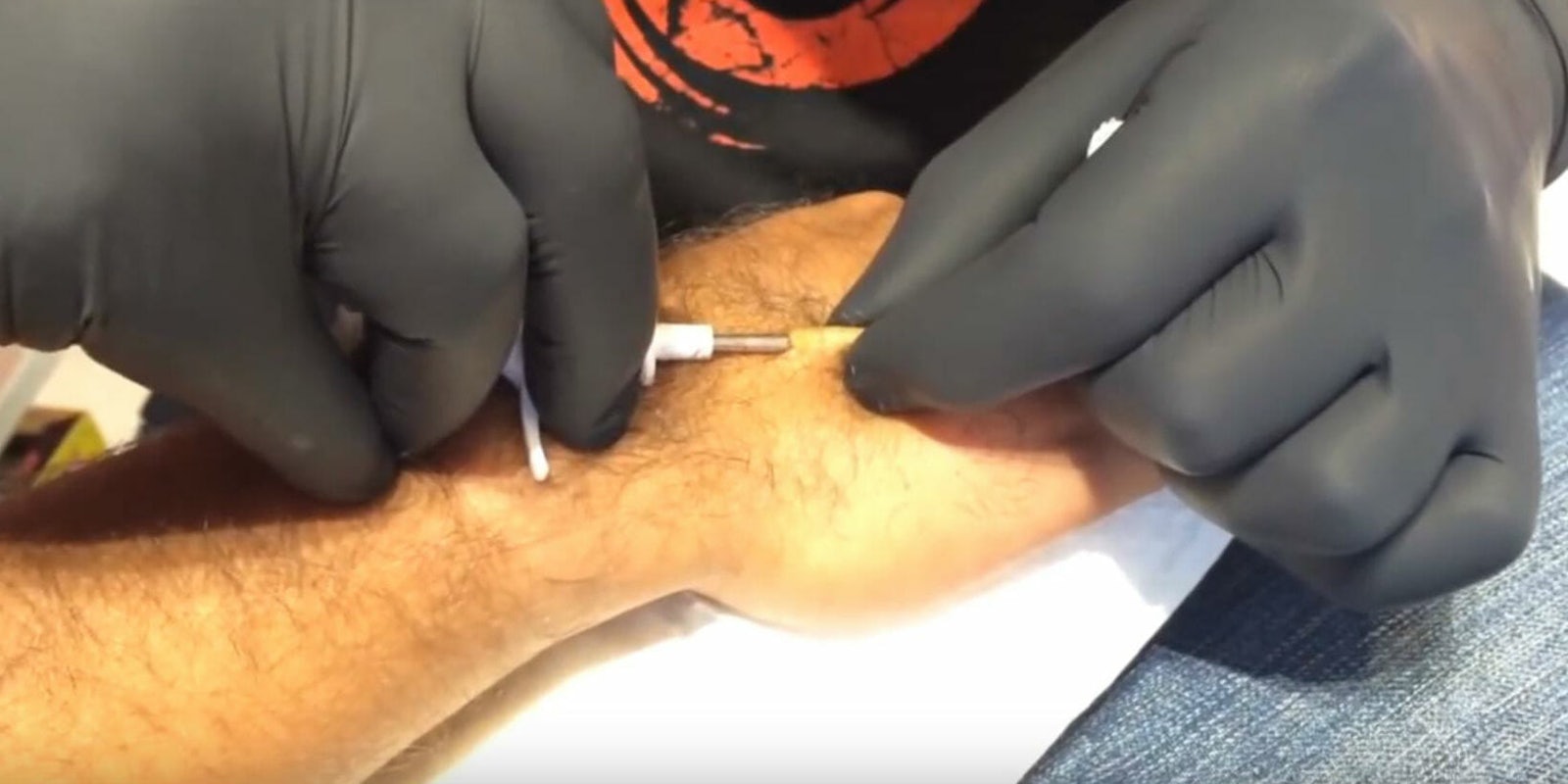Thousands of people in Sweden have implanted microchips beneath their skin to replace their wallet and keys, among other everyday items, Agence France-Presse reported Sunday.
The size of a grain of rice, these tiny microchips use radio frequency identification, or RFID, to interface over a range of frequencies with other connected devices. They are being used by approximately 3,000 people in Sweden who value convenience over potential privacy violations.
Implants have become so common in the country that people can purchase train tickets and upload them onto the chip. One woman in Sweden uses her microchip to open her gym and office door by simply waving her hand over a small box and typing in a code, according to AFP. Swedish biohacking group BioNyfiken even started to organize “implanting parties” where groups of people line up to get the kernels embedded.
In its current form, these microchips have limited functionality, but it’s not hard to see a future where store payments, starting a car, or verifying your identity on your smartphone are all done with a swipe of the hand. Or, like a group of brave employees at a vending kiosk company in Wisconsin, to buy snacks.
There are some obvious privacy and security concerns linked to this ever-increasing form of biohacking. In terms of privacy, companies would have access to more data than ever on how you go about your day. In our impending dystopic future, your employer could track your location, how often you take breaks, or how long it takes you to use the restroom. All it would take is for your chip to be scanned by a reader as you enter the office every day.
There are also the inherent security risks that come with any wireless technology. If hackers found a way into your microchip, they could extract an extraordinary amount of information about you.
Of course, these are all theoretical ramifications of implanting a microchip into your body. For now, the chips are an unconventional convenience for a group of biohacking Swedes.
H/T Business Insider


